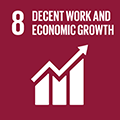National tourism indicators, first quarter 2018
Archived Content
Information identified as archived is provided for reference, research or recordkeeping purposes. It is not subject to the Government of Canada Web Standards and has not been altered or updated since it was archived. Please "contact us" to request a format other than those available.
Released: 2018-06-27
$21.8 billion
First quarter 2018
0.2% 
(quarterly change)
Tourism spending in Canada edged up 0.2% in the first quarter, the same pace as in the previous quarter. Increased spending by international visitors in Canada was partially offset by lower tourism spending by Canadians at home.
Tourism spending by Canadians edges down
Tourism spending by Canadians in Canada edged down 0.1% in the first quarter, following a 0.9% decline the previous quarter. This was the first time since the first quarter of 2009 that domestic tourism spending has declined in two consecutive quarters.
Lower spending on food and beverage services (-1.4%), vehicle fuel (-1.4%) and recreation and entertainment (-2.6%) were the largest contributors to the decrease. However, increases in accommodation (+1.3%) and passenger air transport (+1.1%) almost offset the decline.
Household spending on food and beverage services decreased while spending on accommodation and transport services increased.
Tourism spending by international visitors increases
Tourism spending by international visitors to Canada increased 1.5% in the first quarter, after rising 4.4% in the fourth quarter of 2017.
Spending on passenger air transport (+3.0%), accommodation (+1.2%) and food and beverage services (+1.1%) largely contributed to the gains.
Overnight travel from abroad increased while same-day car travel from the United States fell.
Tourism gross domestic product increases
Tourism gross domestic product (GDP) increased 0.3% for a second consecutive quarter, a similar pace to first quarter economy-wide GDP.
Increases in accommodation (+1.6%) and transportation (+1.5%) industries contributed to the growth in tourism GDP. Declines in non-tourism (-0.8%) and food and beverage services (-0.7%) industries moderated the rise.
Tourism employment declined 0.4% following a flat fourth quarter. Losses in air transportation (-3.3%), travel services (-1.6%), recreation and entertainment (-0.6%) and food and beverage services (-0.3%) industries were partially offset by an increase in accommodation (+0.7%).
Sustainable development goals
On January 1, 2016, the world officially began implementation of the 2030 Agenda for Sustainable Development, the United Nations' transformative plan of action that addresses urgent global challenges over the next 15 years. The plan is based on 17 specific sustainable development goals.
The national tourism indicators are an example of how Statistics Canada supports the reporting on the Global Goals for Sustainable Development. This release will be used in helping to measure the following goal:

Note to readers
Growth rates for tourism spending and gross domestic product (GDP) are expressed in real terms (that is, adjusted for price changes), at 2007 constant prices, as well as adjusted for seasonal variations, unless otherwise indicated. Employment data are also seasonally adjusted. For information on seasonal adjustment, see Seasonally adjusted data – Frequently asked questions.
Economy-wide GDP is obtained from Table 36-10-0104-01.
Associated percentage changes are presented at quarterly rates unless otherwise noted.
The national tourism indicators are funded by Destination Canada.
Next release
Data on the national tourism indicators for the second quarter will be released on September 27.
Products
The Latest Developments in the Canadian Economic Accounts (13-605-X) is available.
The User Guide: Canadian System of Macroeconomic Accounts (13-606-G) is available.
The Methodological Guide: Canadian System of Macroeconomic Accounts (13-607-X) is available.
Contact information
For more information, or to enquire about the concepts, methods or data quality of this release, contact us (toll-free 1-800-263-1136; 514-283-8300; STATCAN.infostats-infostats.STATCAN@canada.ca) or Media Relations (613-951-4636; STATCAN.mediahotline-ligneinfomedias.STATCAN@canada.ca).
- Date modified:




